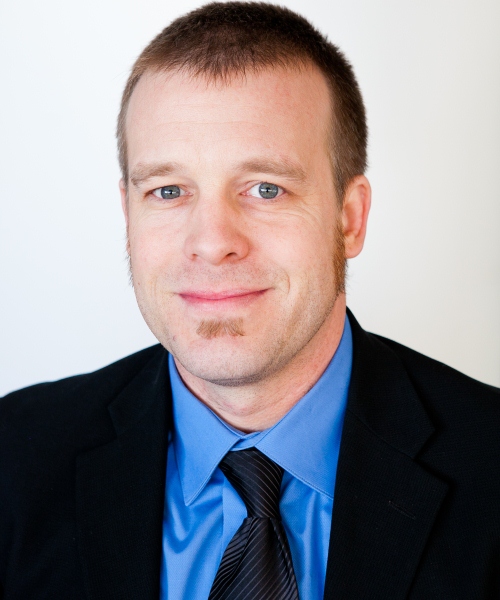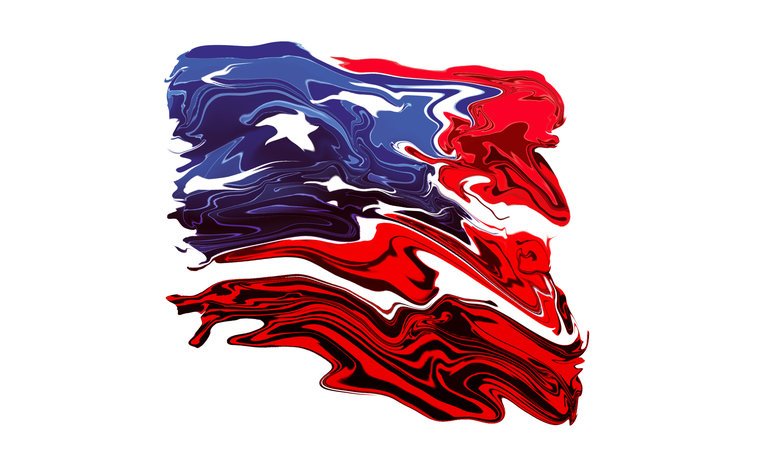Michael S. Hogue (
The November-December issue of the Forum features the Enhancing Life Project, which takes aim at addressing one of the most basic human questions—the desire to enhance life. This desire is seen in the arts, technology, religion, medicine, culture, and social forms. Throughout the ages, thinkers have wondered about the meaning of enhancing life, the ways to enhance life, and the judgments about whether life has been enhanced. In our global technological age, these issues have become more widespread and urgent. Over the last two years, 35 renowned scholars from around the world in the fields of law, social sciences, humanities, religion, communications, and others, have explored basic questions of human existence. These scholars have generated individual research projects and engaged in teaching in Enhancing Life Studies within their fields, as well as contributed to public engagement in various ways.
Over the next month and a half, Enhancing Life scholars associated with the Divinity School will share essays and reflections on the Enhancing Life Project that will explore its implications for their own scholarship and teaching. We invite you to join the conversation by submitting your comments and questions below.
Posted Essays:
- William Schweiker, Enhancing Life and the Forms of Freedom
- Anne Mocko, Attending to Insects
- Kristine A. Culp, “Aliveness” and a Taste of Glory
- Heike Springhart, Vitality in Vulnerability: Realistic Anthropology as Humanistic Anthropology
- Andrew Packman, Enhancing Racialized Social Life: The Implicit Spiritual Dimension of Critical Race Theory
- Michael S. Hogue, Resilient Democracy in the Anthropocene
- Darryl Dale-Ferguson, Envisioning a Fragile Justice
The Enhancing Life Project was made possible by a generous grant from the John Templeton Foundation, and the support of the University of Chicago and Bochum University, Germany.
by Michael S. Hogue
Several decades ago, the celebrated American sociologist Robert Bellah observed that, “Once in each of the last three centuries America has faced a time of trial, a time of testing so severe that not only the form but even the existence of our nation have been called into question.”1 These three American trials, spanning the 18th, 19th, and 20th centuries, stand as transformative crises in history’s longest running national experiment in democracy. In the first trial, the American Revolution, the rough-hewn colonists united in the name of liberty to assert independence from imperial Britain. But the founding independence of the new nation was grounded in a deep moral contradiction: colonial freedom was achieved while Native American genocide and African enslavement continued unabated.
The vicious moral paradox of this first trial sowed the seeds of the second, the Civil War. During this trial, the young nation threatened to fracture as the echo of its cry of liberty rebounded against the brutality of chattel slavery. The principle question of this second trial was whether life, liberty, and the pursuit of happiness were in fact the the unalienable birthright of all “men,” regardless of race and class? Although the struggle for women’s rights remained for the future, Union victory emancipated the slaves and extended nominal freedom to them.
But through the years of Reconstruction and “Jim Crow”, African Americans continued to be exploited, marginalized, and oppressed. It took the Civil Rights movement, a third trial, for the nominal freedom achieved through the second trial to become more substantially realized. Although civil rights gains have been made in recent decades, the United States is currently in the throes of a virulent uprising of anti-black racism, white ethno-nationalism and islamophobia, all of which indicate that we are through a fourth trial of American democracy. But this trial is more than national, for it coincides with the emergence of the Anthropocene, the name geologists are using to designate the current human-dominated epoch in the history of Earth
Constituted by a set of mutually amplifying planetary, religious, and political climate changes, the Anthropocene compels us to reimagine new ways of understanding human freedom and citizenship in relation to the Earth System. It also opens a new conceptual space in which to do so. For by making the Earth homo imago, and bringing the idea of the human as separate from nature to an end, we can and ought to discover ourselves for what we are, terra bestiae—earth creatures.
The Anthropocene forces us to rethink many of the root questions of moral, religious, and political life, including questions about value, meaning, power and common life. Since these are some of the most profound questions we can ask of ourselves, the way we interpret and answer them has tremendous implications. Our conceptions of worth and beauty and of our responsibilities to human and more-than-human others are entangled with our understanding of the depth and scope of moral value and the sources and forms of human meaning. By revealing to us the complexity and vulnerability of life, the Anthropocene provokes new ways of imagining the tasks of moral, religious, and political life. One way to reimagine these tasks is through the concept of “resilient democracy.”
Resilient democracy theorizes democracy as a normative way of life. It is about the symbolic and spiritual textures, the political and economic practices, the material and ecological conditions, and the moral purposes of our associational lives. As “normative,” resilient democracy is morally charged: it seeks to generate, guide, and sustain efforts to enhance life in ways that are empathic, emancipatory, and equitable. As a “way of life,” resilient democracy is not intended as a formal theory of governance, but as a way of dreaming, deliberating, deciding, and designing together the moral shape of our common life.
Resilient democracy is bifocal; it includes two different but integrated lenses, one that focuses on the horizon of planetary life and another that focuses on the particularities of local democratic community. It aspires to integrate what ultimately orients us and what immediately concerns us, the future as well as the present of life, the breadth of planetary and global systems along with the depth and intensity of local life.
A basic claim of resilient democracy is that the power of the people is vulnerable and therefore that democracy is a vulnerable politics. This provokes the basic question of how to build the resilient communities and practices needed to sustain the struggle for democracy in face of the many powerful countervailing forces opposed to democracy. Building more resilient democratic communities to sustain democratic struggle depends on embracing democracy’s vulnerability, and embracing democracy’s vulnerability entails rejecting every claim to democracy’s fulfillment. Resilient democracy accepts that the struggle for democracy is unending and that there is no transcendent reality that is “democracy achieved.”
Although the power of the people is a vulnerable power, not all vulnerability is the same. Resilient democracy is concerned with two types of vulnerability—creatural and contingent. Creatural vulnerability is an ontological condition—it is universal, given, inherent to life. To be a living creature, to be a person, is to be woundable, able to cause and to suffer wounds, to harm and be harmed, to eat and be eaten. Contingent vulnerability, on the other hand, disproportionately afflicts some of us more than others. Contingent vulnerability is determined by any number of factors, such as where and when we are born, the bodies and minds we are born into, the social and class locations we inhabit, and proximity to environmental hazards.
Unlike creatural vulnerability, which is universal, given, and inherent, contingent vulnerability is asymmetrical, constructed, and systemic. For example, some kinds of bodies are more vulnerable than others. Gender, skin color, and sexual orientation all influence a human body’s vulnerability. This is not because being female or transgender or gay or brown or black-skinned is inherently more vulnerable than being male or cisgendered or straight or light or white skinned. Rather, it is because social norms and cultural values confer advantages and disadvantages related to gender, race, ethnicity, and sexuality, and these advantages and disadvantages are systemically transmitted, institutionally reinforced, and historically cumulative.
The idea that democracy is vulnerable, that it has been and can be lost, should awaken us from our political slumber.2 This awakening becomes creatively efficacious when our grief for what has been and could be lost motivates us to deepen the democracy that remains, to extend and enliven it by practicing it more fully, and thereby to contribute to a more resilient democracy.
Resilient democracy also claims that the pragmatics of democracy demands a spirit of collaboration—a spirit of epistemic, moral, and social generosity. This entails humility toward our own convictions, curiosity about others’ experiences, a willingness to learn from others, readiness to revise our own perspectives in response to ongoing experience and dialogue, and commitment to a common life larger than our own self-interest. In short, the spirit of collaboration necessary to resilient democracy requires recognition of the fallibility of our own standpoints and generous regard for the potential wisdom of others.
Resilient democracy is a theory of democracy for an uncertain world. It affirms Sheldon Wolin’s idea of democracy as a “fugitive” and “anti-totality” politics: “The power of a democratic politics lies in the multiplicity of modest sites dispersed among local governments and institutions under local control…and in the ingenuity of ordinary people in inventing temporary forms to meet their needs.”3 My argument is thus not that resilient democracy is the solution to the fourth trial of democracy or to the planetary perils of the Anthropocene. Instead, resilient democracy aims to build melioristic capacity through new democratic fusions of religious, political, and ecological life. Amidst the uncertainties and urgencies of human life in a more-than-human world, resilient democracy is committed to the practices of democracy as a way of life. Although it is certainly not an adequate solution to our global political and planetary ecological crises, it emerges out of a deep sense of the complexity and urgency of those crises. It is a morally catalytic, spiritually invigorating, communally grounded, radically democratic intervention into the root contexts, causes, and conditions of our complex challenges.
Resilient democracy is committed to cultivating a grassroots democratic ethos that is empathic, emancipatory, and equitable, for the grassroots are where the personal and social, the economic and the ecological, the spiritual and moral, and the planetary and political conditions of our lives are simultaneously most vibrant and most vulnerable. We need to be more fully attuned to the vibrancy and vulnerability of these conditions of life in order more fully to value and enhance life. ♦
 Michael S. Hogue is Professor of Theology, Ethics, and Philosophy of Religion at Meadville Lombard Theological School (Chicago, IL, USA). He is the editor of the American Journal of Theology and Philosophy and the author of three books, The Tangled Bank: Toward an Ecotheological Ethic of Responsible Participation (Pickwick, 2008); The Promise of Religious Naturalism (Rowman and Littlefield, 2010), and American Immanence: Democracy for an Uncertain World (Columbia University Press, 2018).
Michael S. Hogue is Professor of Theology, Ethics, and Philosophy of Religion at Meadville Lombard Theological School (Chicago, IL, USA). He is the editor of the American Journal of Theology and Philosophy and the author of three books, The Tangled Bank: Toward an Ecotheological Ethic of Responsible Participation (Pickwick, 2008); The Promise of Religious Naturalism (Rowman and Littlefield, 2010), and American Immanence: Democracy for an Uncertain World (Columbia University Press, 2018).
* Image credit: Jennifer Heuer
- Robert Bellah, The Broken Covenant: American Civil Religion in a Time of Trial (New York: Seabury Press, 1975), 1. ↩
- Sheldon Wolin argued along similar lines, “The experience of which democracy is the witness is the realization that the political mode of existence is such that it can be, and is, periodically lost.” Fugitive Democracy and Other Essays, 111. ↩
- Sheldon S. Wolin, Politics and Vision: Continuity and Innovation in Western Political Thought, Expanded Edition, (Princeton: Princeton University Press, 2004), 603. ↩

